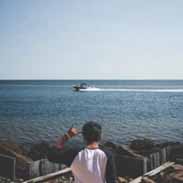Imperialism Vocabulary – Flashcards
Unlock all answers in this set
Unlock answersquestion
imperialism
answer
A policy in which a strong nation seeks to dominate other countries politically, socially, and economically.
question
Foreign Policy
answer
A nation's overall plan for dealing with other nations
question
Spanish American War
answer
War fought between the US and Spain in Cuba and the Philippines. It lasted less than 3 months and resulted in Cuba's independence as well as the US annexing Puerto Rico, Guam, and the Philippines.
question
San Juan Hill
answer
Site of the most famous battle of the Spanish-American war, where Theodore Roosevelt successfully leads the Rough Riders in a charge against the Spanish trenches
question
U.S.S. Maine
answer
"start" of the Span-Amer war; exploded off the coast of cuba and it was blamed on spanish torpedoes; heightened by yellow journalists
question
yellow journalism
answer
Journalism that exploits, distorts, or exaggerates the news to create sensations and attract readers
question
Open Door Policy
answer
A policy proposed by the US in 1899, under which ALL nations would have equal opportunities to trade in China.
question
Spheres of Influence
answer
Areas in which countries have some political and economic control but do not govern directly (ex. Europe and U.S. in China)
question
dollar diplomacy
answer
Foreign policy created under President Taft that had the U.S. exchanging financial support ($) for the right to "help" countries make decisions about trade and other commercial ventures. Basically it was exchanging money for political influence in Latin America and the Caribbean.
question
Panama Canal
answer
The United States built the Panama Canal to have a quicker passage to the Pacific from the Atlantic and vice versa. It cost $400,000,000 to build. Colombians would not let Americans build the canal, but then with the assistance of the United States a Panamanian Revolution occurred. The new ruling people allowed the United States to build the canal.
question
Alfred Mahan
answer
Captain of the U.S. Navy who was for imperialism. He thought that a bigger navy was needed to protect American ships.
question
Great White Fleet
answer
16 American battleships, painted white, sent around the world to display American naval power
question
Henry Cabot Lodge
answer
A Republican who disagreed with the Versailles Treaty, and who was the chairman of the Senate Foreign Relations Committee. He mostly disagreed with the section that called for the League to protect a member who was being threatened.
question
Theodore Roosevelt
answer
1858-1919. 26th President. Increased size of Navy, "Great White Fleet". Added Roosevelt Corollary to Monroe Doctrine. "Big Stick" policy. Received Nobel Peace Prize for mediation of end of Russo-Japanese war. Later arbitrated split of Morocco between Germany and France.
question
Sanford B. Dole
answer
A famous lawyer and farmer who headed the effort to remove Queen Liliuokalani from power with the U.S. Marines, declaring a Hawaiian Republic and requesting U.S. annexation.
question
Rough Riders
answer
The First United States Volunteer Calvary, a mixure of Ivy League athletes and western frontiermen, volunteered to fight in the Spanish-American War. Enlisted by Theodore Roosevelt, they won many battles in Florida and enlisted in the invasion army of Cuba.
question
Big Stick Policy
answer
Roosevelt's philosophy - In international affairs, ask first but bring along a big army to help convince them. Threaten to use force, act as international policemen
question
Roosevelt Corollary to the Monroe Doctrine
answer
Early in the 20th century, the United States announced that it must "exercise ...an international police power" in the Western Hemisphere in the
question
American Expansionism
answer
The Monroe Doctrine and social Darwinism contributed, The belief that the US should take over other countries to promote economic growth, protect american security, and preserve american spirit
question
Missionaries
answer
A person sent on a religious mission. Mostly Christian missionaries sent to countries where the U.S. was trying to achieve influence.
question
Social Darwinism
answer
A social theory which states that the level a person rises to in society and wealth is determined by their genetic background.
question
Annexation
answer
The adding of a region to the territory of an existing political unit.
question
Anglo-Saxon
answer
The entire English race wherever found, as in Europe, the United States, or India.
question
Queen Liliuokalani
answer
the Hawaiian queen who was forced out of power by a revolution started by American business interests
question
Matthew Perry
answer
A commodore in the American navy. He forced Japan into opening its doors to trade, thus brining western influence to Japan while showing American might.
question
Protectorate
answer
A country whose affairs are partially controlled by a stronger power.
question
De Lome Letter
answer
Spanish Ambassador's letter that was illegally removed from the U.S. Mail and published by American newspapers. It criticized President McKinley in insulting terms. Used by war hawks as a pretext for war in 1898.
question
Jingoism
answer
(n) extreme and emotional nationalism, or chauvinism, often characterized by an aggressive foreign policy, accompanied by an eagerness to wage war. Iran and Israel's extreme jingoism creates fear for its inhabitants.
question
Platt Amendment
answer
Legislation that severely restricted Cuba's sovereignty and gave the US the right to intervene if Cuba got into trouble
question
Malaria
answer
A disease caused by mosquitoes implanting parasites in the blood.
question
Yellow Fever
answer
A disease transmitted by mosquitoes: its symptoms inclued high fever and vomiting



